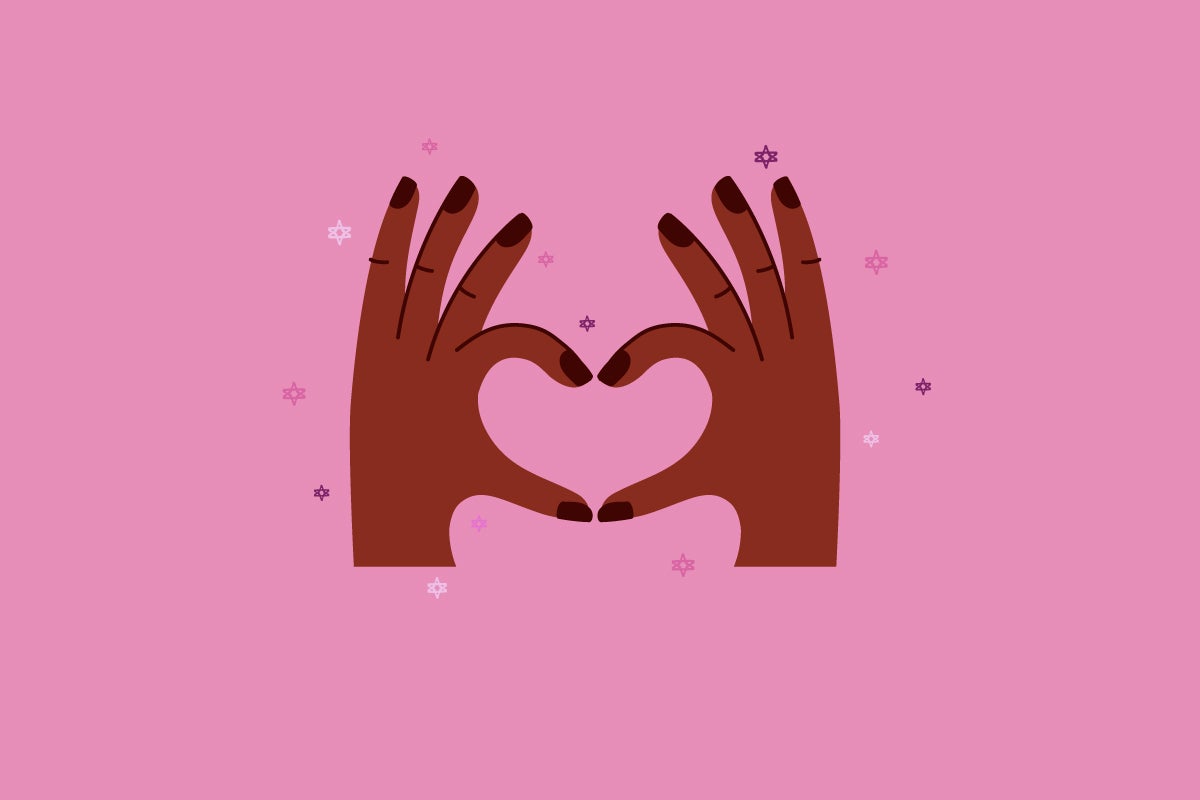How I learned to love myself as a Black Jew
Published June 17, 2020

This story originally appeared on Alma.
As a child, I always knew I was Black, but I didn’t know what that meant for me as an individual. I certainly didn’t know how my Blackness intersected with my other identities, including my Jewishness. I didn’t even realize, when one of my friends asked me how I could believe in God but not Jesus, that my religion and my race were informing her question.
ADVERTISEMENT
Cut to almost 10 years later and I’m coming out of the closet. I am Black, I am Jewish, I am queer, and on top of all that, I’m a woman, too. Someone once said I decided to play the game of life on “Expert Mode.” I couldn’t help but laugh at such an accurate analogy because although I am so proud to be a queer Jewish woman of color, it has taken an excruciating amount of work to reach this point and fully love myself.
Even though I am not consciously thinking about all of my identities every second of every day, they all inform the way I lead my life, the ways in which I interact with the world, and the ways in which the world sees and interacts with me. Sometimes these interactions lead to uncomfortable experiences, whether it be someone telling me I “don’t look Jewish,” or asking if I’m Jewish while I’m literally telling them about my practice. On one occasion I had to explain to someone that the Jews and the Amish are actually different communities.
These are examples of conversations I have been a part of since I was a child, but as an 8-year-old, I didn’t know why Jesus wasn’t a figurehead for us, nor was the word “microaggression” even on my radar. I was being asked questions I didn’t have the tools or the experience to answer, and I didn’t have the vocabulary to describe the discomfort I felt when thrown into these conversations. I felt cornered, accused and scared. I began to question myself and my identity as a Jew, wondering if the reason I couldn’t answer these questions was because I just wasn’t “Jewish enough.”
I never would have conquered this self-doubt if it weren’t for my mother. From a young age, she would read me books and make up stories featuring Black Jewish women, allowing me to find myself in these stories. Two of my favorite books as a child were “King Solomon and the Queen of Sheba” and “Always an Olivia.” I didn’t know that hearing stories about girls like me was an extraordinary thing for people of color. I didn’t notice how whitewashed many of my other favorite books were at the time.
My mother worked hard to make sure I knew that my identities made me special and that no one could tell me I was less Jewish than my white peers. I’m so grateful to my mom for making up stories I needed to hear, and I’m glad to know that now there are even more children’s books that represent Jews of Color, like “Ezra’s BIG Shabbat Question,” which is about a biracial Jewish boy who wants to know if tying one’s shoes is allowed on Shabbat.
ADVERTISEMENT
My mother also introduced me to one of the most influential resources on my own path to self-love: the Be’Chol Lashon community. Be’Chol Lashon is a nonprofit organization dedicated to creating and participating in conversations about the experiences of Jews of Color around the world. Attending family camp and surrounding myself with other Jews of Color like me every year showed me that I wasn’t alone, and over time provided me with the vocabulary I needed to confidently engage in the difficult conversations for which I had previously felt so unprepared.
Be’Chol Lashon is not only a family camp, but a summer camp as well. The Be’Chol Lashon organizers realized how important an open, respectful environment was to the kids attending family camp and created a space just for us. I’ll admit, going to a camp where my mom was the director for the first few years had its ups and downs, but the relationships I have cultivated with my Be’Chol Lashon family, and the joy of being able to return as a counselor and educator are absolutely worth it. Just the other day I spent five hours on a Zoom call with my fellow counselors, planning this year’s virtual summer camp and catching up with each other. We are shaping Camp Be’Chol Lashon, knowing that it was built for us, and as former campers, it is our job to make sure that we create an experience for our younger JOC family members akin to that which has kept us coming back all these years.
The last thing I’d recommend to all of my fellow Jews of Color: Take up space. No matter how many weird looks you get, no matter how many ignorant people get in your way, don’t be afraid to enter Jewish spaces because you deserve to be there and to join the conversation. You don’t have to prove yourself to anyone; only you define your Judaism.
Being a Jew of Color is a wonderful thing, and to my Jewish peers of color who are still experiencing self-doubt, I feel you and I understand. Remember it is not your job to educate everyone who asks about the JOC community, especially if it means wearing yourself out or making time you don’t have. It took me quite some time to find this self-love, and to be honest, it’s not always constant.
But I am in such a better place emotionally and spiritually after realizing that rather than run away from impossible questions and never-ending conversations, I can learn more about myself and my community and become a prominent voice in the Jewish dialogue.














